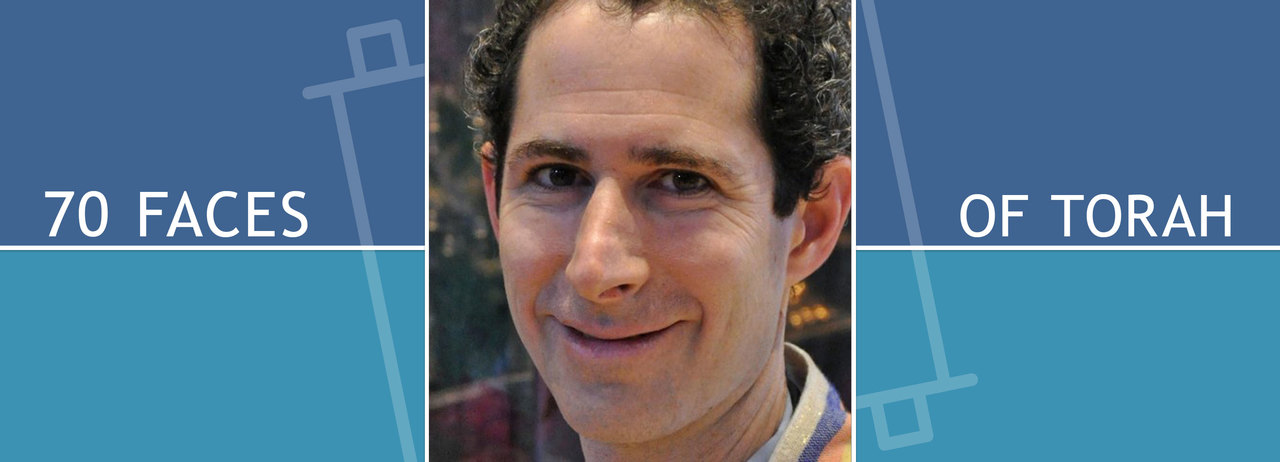Genesis Banu Chosech L’garesh — Banishing the Darkness

Parashat Miketz, Genesis 41:1–44:17
Hanukkah always arrives at a dark time of year, when we in New England are feeling the urge to hibernate. The days are shorter, the weather colder; Shabbat begins and ends in the late afternoon. The outside activities and pleasures of summer and fall are diminishing, along with the chances to socialize, to linger, to eat with friends outdoors. Despite having experienced these seasonal shifts annually for my whole life, I still find these developments surprising and unsettling. And the shifting of our planet in relation to the sun only makes navigating the latest Greek-lettered COVID variants and the troubles of our society and world feel more difficult.
According to the Talmud, these seasonal feelings of apprehension are a universal phenomenon dating back to the first humans. In one telling (Avodah Zarah 8a*), Adam notices the days shortening as the first winter solstice approaches, and fears that the world is returning to chaos. He fasts and prays for eight days. As the solstice passes and the days begin to lengthen, he realizes this is the natural world order and creates an eight-day festival. This earliest solstice celebration is not explicitly tied to Hanukkah, but has obvious similarities in length and date, and is said to have been established “for the sake of heaven.”
In a related tale in Breisheet Raba, God creates the or haganuz, the “hidden light,” with which one could see from one end of the universe to the other, on the first day, before creating the sun, moon, and stars, on the fourth day. Adam is created on the morning of the sixth day, Friday, and he and Eve eat from the Tree of Knowledge of Good and Evil near dusk. God delays banishing Adam and Eve and hiding the supernal light until after a full Shabbat. Upon leaving the Garden Saturday night and experiencing darkness for the first time, Adam is terrified. So God provides flint to make fire, and Adam recites the blessing we say at Havdalah, borei m’orei ha’eish. According to Rebbe Pinchas of Koretz, the 36 candles that we light on Hanukkah (the sum of one through eight, not counting the shames, the candle used to light the others) are connected to the primordial light from the Garden of Eden, which humans experienced for 36 hours. These lights bring us an echo of the Garden of Eden and a foretaste of Messianic times, when, according to tradition, we will experience these lights again.
Our Torah portion, Miketz, begins at a dark time for Joseph, as he lingers in the dungeon, wrongfully convicted, forgotten by Pharaoh’s cupbearer. The Sefat Emet, the Rebbe from 19th-century Ger, Poland, says that forgetting is related to darkness, the two words sharing the anagrammatic roots shin-chaf-chet / chet-shin-chaf, and that remembering is related to light. The portion jumps ahead in time to introduce Pharaoh’s dreams with the words: וַיְהִ֕י מִקֵּ֖ץ שְׁנָתַ֣יִם יָמִ֑ים—“after two years’ time.” The word miketz literally means “the end,”—“at the end of two years.” The midrash in Breisheet Rabba makes a connection to the same word in Job 28:3, “ketz sam lachoshech,”—“God sets an end to darkness.”
The Sefat Emet, the Rebbe from 19th century Ger, Poland, returns to this midrash often, emphasizing that darkness is limited, with a fixed end, but light is expansive. Once it’s dark, it can’t get any darker, but each flame shares and amplifies the light. An “end to darkness” means that the sun will return as it does each morning, and the days, while short and cold now, will gradually expand, and eventually get warmer again. And darkness can end in different ways. Our troubles may vanish suddenly, like those of Joseph, whose fortune changes instantly when the butler remembers him, and Pharaoh calls him out of prison to interpret his dream. Or a solution to our problems may evolve slowly, as with Judah and his brothers, who gradually change enough to make reconciliation with Joseph possible. And the Sefat Emet suggests that even if our troubles linger, the darkness may decrease through our resources of faith, our resilience, and our friendships, that can help us navigate through it. As Joseph advised Pharaoh to store grain during the good years to provide for the bad ones, the Sefat Emet tells us to store up holiness during the good times so that it will be there to sustain us during the difficult times, when holiness seems hidden.
As we watch the candles burn this week, may they bring us a taste of memories past, hope for the future, strength to sustain us through the winter to come, and the knowledge that miracles can happen and darkness is temporary. May we have a likhtikn khanike—a Hanukkah filled with light.
* Thanks to my teacher Nehemia Polen, with whom I had the pleasure of studying most of these texts.
Ken Richmond has been the Cantor of Temple Israel of Natick since 2006, and received s’micha from Hebrew College’s Rabbinical School in 2021. He is looking forward to becoming co-senior rabbi of Temple Israel next year.

